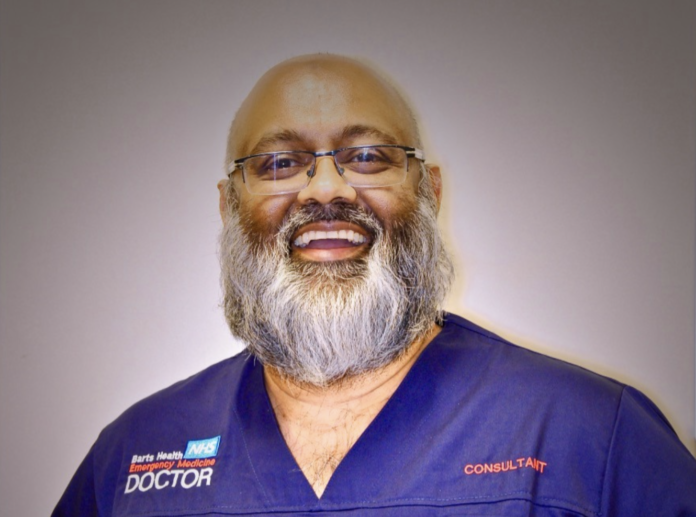LONDON: A British Muslim doctor on Thursday shared his tried and tested tips with pilgrims who are about to participate in the first post-pandemic Hajj open to foreigners, which includes preparing for the intense summer heat, and carrying important medicines.
Dr. Imran Zia, clinical director for emergency medicine at Barts Health NHS Trust, has accompanied British groups on Hajj as both a medical expert and a guide at least 15 times.
During a webinar hosted by the Council of British Hajjis, the veteran health worker explained how pilgrims should prepare for summer temperatures of over 40 degrees Celsius.
“Umbrellas are very useful, especially in the heat and the temperature at the moment is likely to be between 40 and 45 degrees. We are not used to such high temperatures in the UK and I would encourage you to wear light colors and use sunscreen. Avoid going out in the afternoon if you can,” Zia said.
As the Hajj involves a lot of walking between the holy sites in the scorching heat, Zia advised pilgrims to break-in the footwear they plan to use.
“Please walk in the sandals that you are going to take with you. Every year we see people buying a new pair of sandals, taking them to Saudi Arabia, and then getting blisters. You need to wear in those sandals now.
“If you feel that the soles of your feet are going to give you problems, then I’d encourage you to buy good quality insoles, and glue them to the inside of your sandal. You’ll find that that will give you an immense amount of relief. It’s like you’re walking on air.
“If you’re diabetic, I would discourage you from taking flip-flops as they encourage infections, skin breakages, sweatiness, and will likely give you problems. So it’s better to get sandals with straps that you can secure,” the medical professional said.
Zia also addressed the notorious Hajj cough that many pilgrims get due to the dry and dusty environment and the fact that people from all over the world have gathered in one place.
“With the Hajj cough, which unfortunately many people get, the onset is pretty rapid. It comes on very suddenly and your temperature will go up and down. You will have a pronounced headache and it’s really quite severe. Having a sore throat is very common. It’s a dry cough and you’ll feel really achy, like you’ve been hit by a bus,” Zia said.
“Unfortunately, there is no medicinal tablet I can recommend that you take other than using simple measures such as paracetamol to keep the temperature down, lozenges to help with the sore throat, gargling with saltwater, and having a rest.”
He said the best way to prevent getting the Hajj cough is to wear a face mask, keep one’s mouth covered, and practice good hygiene.
“If you see someone coughing, keep your distance,” the doctor said.
He also highlighted the importance of pilgrims taking a sufficient amount of medicine for those who have existing health conditions.
“Take plenty of medication. One thing I will say about medication is that you should take it in your hand luggage. Also pack some in your hold luggage. And if it’s really important medication that you do not want to get lost, pack it with the person who’s accompanying you as well, with a covering letter,” Zia said.
“Some medications, especially for cancer or diabetes are just not available. Take a repeat prescription with you so that if you do become ill, people know what medication you’re on. If you have a serious condition, I will always encourage you to take the name of your hospital consultant, the hospital consultant’s contact number or the secretary of their department, and your hospital number with you.”
He also advised people who usually wear contact lenses to avoid doing so during the pilgrimage and to pack a spare pair of spectacles.
“I would encourage all of you to avoid contact lenses, if possible. It’s likely that you’re going to be awake for many hours in the dusty environments and suffer from lack of sleep. The last thing you want to do is to get an eye infection. And take a spare pair of spectacles,” Zia said.
Lastly, the doctor shared his golden list of “Ps”:
Prescription list, of all prescribed medication
Patient details with contact numbers, especially if you have an ongoing problem
Paracetamol will help reduce a temperature
Plasters for blisters
Petroleum jelly (unscented) will ease chafing between the legs
Penicillin/antibiotic if you can obtain this medication

